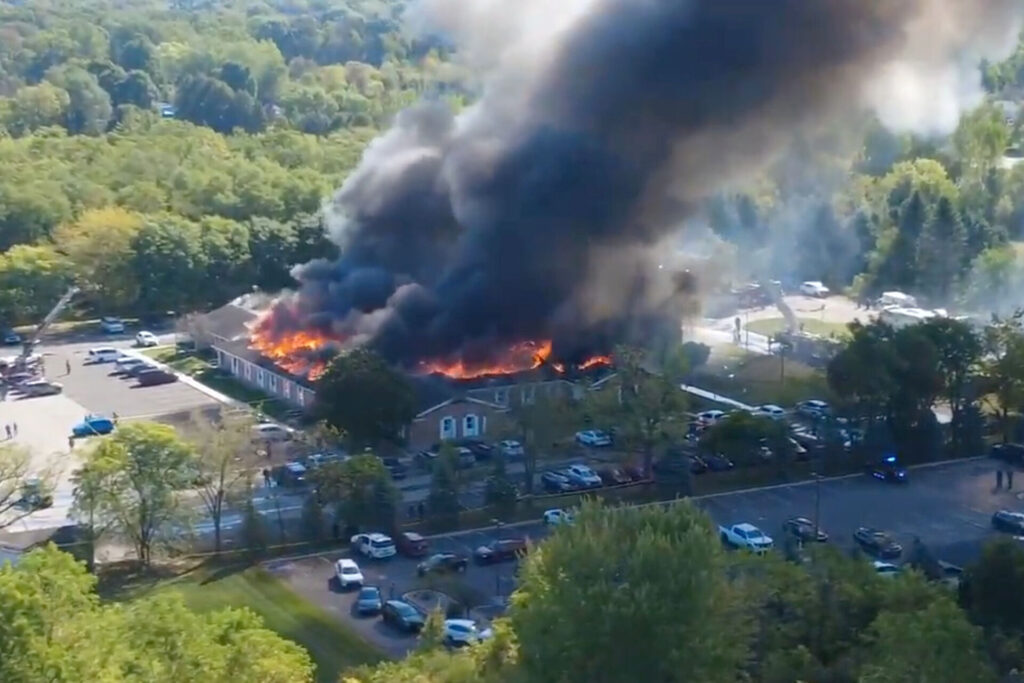Douglas County to appeal dismissal of lawsuit against Colorado’s ‘sanctuary’ laws
Douglas County officials said they plan to appeal a Denver district court’s dismissal of a lawsuit against the state of Colorado over its “sanctuary” statutes that restrict local law enforcement officials from working with federal authorities on illegal immigration.
The county’s lawsuit targeted a 2023 law that restricts the ability of state and local governments from making agreements with federal immigration officials over the detention of immigrants who are unlawfully staying in the country, as well as a 2019 statute that blocks local law enforcers from arresting or detaining an immigrant solely on the basis of a federal immigration detainer.
“The bottom line is, the judge got it wrong,” Commissioner George Teal said in a statement. “We want to cooperate with the federal government on matters of public safety and immigration. We pay taxes, too, to the feds. These (state) laws that we are suing on prohibit us from accessing those federal services.”
“We are required by these state laws to conceal the identity of those who committed a crime and are here in our country illegally,” added Commissioner Kevin Van Winkle. “We cannot stand idly by, barred by the state from cooperating with federal agencies, when public safety is at risk.
In dismissing the case, District Court Judge David Goldberg concluded that Douglas County does not not have any standing to sue the state. In particular, the judge rejected the county’s argument that it suffered an injury because its sheriff is unable to comply with what’s called a federal immigration detainer request.
The judge noted that the federal government is, in fact, prohibited from mandating a state to comply with a detainer request. As a result, the judge said, Colorado is “free to determine the extent, if at all, the state will comply with civil immigration detainer requests and whether the state will enter into or renew immigration detainment agreements.”
An immigration “detainer” is a notice issued to federal, state and local law enforcement agencies informing the latter that ICE intends to assume custody of an individual who is no longer subject to the former’s detention.
Douglas County’s lawsuit had argued Colorado’s laws are “illegal and unconstitutional” because they violate the Colorado Constitution’s provisions on intergovernmental relationships and distribution of powers. They are also preempted by federal immigration laws and regulations, the lawsuit added.
In pushing for the 2019 law, sponsors said any requirement that public safety agencies “play a role in enforcing federal civil immigration laws can undermine public trust.” Sponsors also said Coloradans have “constitutional rights to due process and protection against unlawful detainment and seizures.”
And in passing the 2023 law, lawmakers said it is an “inappropriate exercise of a state’s police powers to detain individuals for federal immigration purposes given its implication on foreign relations.” Lawmakers also declared that “phasing out” state and local officials’ involvement in civil immigration detention is warranted.
Roughly 43,000 immigrants have arrived in Denver after illegally crossing America’s southern border over the past two years or so. City officials in Denver do not know exactly how many have remained here, though bus, plane and train tickets purchased for immigrants traveling elsewhere suggest that fewer than half have left.
Douglas County — and several other jurisdictions — have distanced themselves from Denver, which also has adopted “sanctuary” laws. No legal definition of a “sanctuary” city or state exists, but, broadly speaking, it refers to a community that expressly refuses to cooperate with federal authorities on enforcing immigration laws.
Reporters Nico Brambila and Noah Festenstein, and Editor Luige del Puerto contributed to this article.











